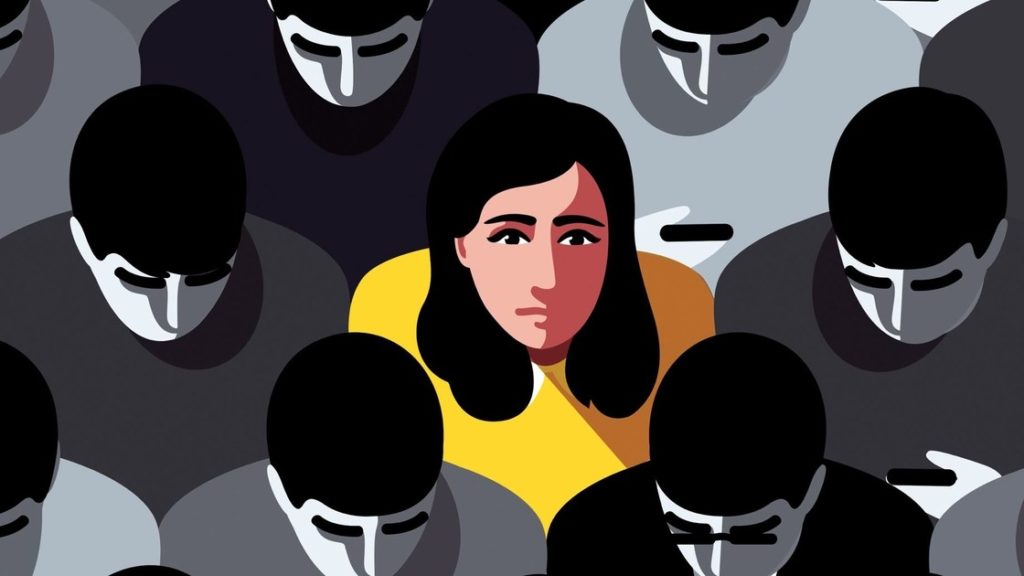Navigating life as a woman in the world today is incredibly difficult. From Nigeria to Timbuktu, it’ll amaze you how similar all our experiences are.
Every Wednesday at 9 am, women the world over will share their takes on everything from sex to politics right here.
In this week’s HER I had a conversation with a woman who works in a typically male-dominated field; she’s a software engineer, and in Nigeria there currently aren’t as many female coders as there are male coders. The tech ecosystem is pretty male-dominated, and this has adverse effects on the women who have broken glass ceilings and become product managers, software engineers, designers etc. There’s no stopping this woman though, it may be a male dominated field, but there’s no way in hell anyone is going to disrespect her, make her feel inferior, or tell her to slow down.
What do you do for a living?
I’m a software engineer and currently a front-end engineer.
How did you start coding?
I started coding professionally in 2017. Before that, I was a system administrator or technical support engineer. I studied computer engineering in university. I had always wanted to learn how to write code back in school, but I had no idea how to start, especially since I didn’t want to transfer to the computer science department to focus on it; I still loved engineering as a whole.
Even though I watched a lot of tutorial videos in school and during my service year, I had no idea I had to get practical to make my theoretical knowledge of the sciences stick.
Then I had an epiphany after one year of being a technical support engineer. I attended a boot camp which made me understand the need to build actual software applications to learn and get better. This is where my journey into the world of coding began.
What was the journey like?
Initially, when I was learning in isolation, I was excited to explore the coding path and didn’t even think of past experiences where I was discriminated against. This was during my internship phase while in school. It was a subtle kind of discrimination, almost easy to miss. I knew then that being a working woman would always be difficult.
As soon as I started off professionally (at the boot camp, and afterwards, as a software engineer), the discrimination and stereotyping hit me very hard and I realised it was for very petty reasons:
- Certain people felt I was too attractive to be in this space and questioned if I was actually doing my work all by myself.
- They also hated the fact that I was leveling up at a fast pace given that before that, I hadn’t written any line of code. I discovered this reason recently and I was shocked because I didn’t even see my work when I started off as good enough. Imposter syndrome was my nemesis.
These perceptions broke me. I had to tell myself to shut out the noise and focus on my goal. It was a painful phase mostly because I couldn’t talk to anyone about it. People who knew what was going on told me to put in more effort to prove myself to the naysayers.
I decided to do the reverse, which was proving to myself and myself alone that I was, and that I am good enough. I had to say to myself:
I am in a competition with no one but myself to get through this phase.
Was the discrimination and hate coming from men or women or both?
Yes, it was from both angles.
That sucks. When you started, were there women doing the same things that you did?
It really did suck then. But it wasn’t new to me. It felt familiar but it just wasn’t expected. Yes, there were women in the coding space but a very low percentage.
Tell me about one experience?
One experience I remember vividly was during my time as an intern. Everyone on the tech team didn’t like the CTO at the time. I was the only lady on the team and I did like his work ethic and his versatility. Because I was always willing to listen to him and work on tasks swiftly, he always wanted to give me tasks to work on and teach me something new. One of the team members resorted to telling others on the team that I was thirsting after the CTO, knowing fully well that the CTO was married.
There was also a time when at this same company, I made a joke during a team meeting and the former CTO (who is now late) “playfully” slapped my head. I told him not to do that next time and he went ahead to call me “small girl.” His words were, “Who do you think you are to talk to me like that? Do you think I’m trying to toast you or something?”
He swore to report me to the Executive Director who unbeknownst to him was my godfather. If this wasn’t the case, the story he cooked up and reported me for would have gotten me fired for his stupidity, inability to take feedback and respect my space.
How was it like growing up with your dreams?
Growing up with my dreams was a bit fluid because my dad loved how technology savvy I was at age 6; I used to fix electronic devices around the house when they got bad. I had no training whatsoever, but I knew to put the red and black wires together and make things work. He got a computer for the house when I was in primary school and this was how I fell in love with computers.
I have 3 sisters and a brother (he is the last child). Before he was born my siblings and I were given a “military” kind of training which made us independent (mostly for me as the first child). My dad was also keen on us pursuing our careers in male-dominated industries. He never enforced this on us, but I already loved technology, so it wasn’t tough choosing this path myself.
On the other hand, my mum was often concerned and would ask if I could keep up with being in science class during my secondary school year. Her concern was valid, because I was really young, most likely the youngest in my set. Sometimes, her concern got to me and made me question myself, but it didn’t drive me to change my mind on my set goals.
They have always supported my decision(s) to start and continue on this path.
Have you had to deal with being relegated to gender roles in professional settings?
Oh yes! At this firm I worked, there was no cleaner and the accountant (a married woman) assumed that role because she used to come before everyone else. She once delegated to me and I refused. Hell no. This is not what I came here for.
Taking down meeting notes is another thing I often see delegated to women in a lot in tech teams. I like that my strong-head doesn’t allow me to agree to this and no one has tried suggesting this to me again. I will only take down notes for myself or when the meeting pertains to a product I’m working on or heading as a team lead.
Would you say it’s a man’s world?
Yes, it is indeed a man’s world. Many companies in recent times pose as organisations who are in support of inclusivity or diversity, but fail to create systems that truly support women or overhaul their internal process which can help women work better within these spaces. At the end of the day, most of these are fronts to convince investors that they look out for women. Not to rain on anyone’s parade, but it is what it is.
What would you advice young women coming after you?
My advice is to prepare for the unexpected. It will be rough, it will be brain-draining. On some days you will lose yourself, but the only thing that should keep you going is whatever it is that motivates you. Be it money, recognition, passion about learning and growth etc.
One last question: Are you optimistic about the future of tech in Nigeria for women?
I am very optimistic about the future for myself and other women in the tech space in Nigeria. I see certain organisations who are invested in creating an environment that favours everyone, including women. For example, having pads and tampons in the women’s bathroom which might seem little, goes a long way in helping us when stranded. Another example is having a play area/crèche for kids which helps women with kids watch over them even while at work.
Also, a lot of training initiatives have helped create awareness for many brilliant women who lack opportunities. It will only get better from here.
A lot has changed and the stereotypical conservative, “t-shirts and jeans, no makeup” kind of women are not the only kind of women I see in tech these days. There is no rule for how one should be, to exist in this space as a woman and I’m glad a lot of beauty queens, dressed to kill and slay everyone are now existing in this space. We are continuously breaking glass ceilings. It is so beautiful to watch and I hope it only gets better from here.
Hi there! The HER weekly newsletter launches on the 6th of March, 2021. A new newsletter will go out every week on Saturday by 2pm. If you have already subscribed please tell a friend. If you haven’t, you can by clicking this button. It will only take fifteen seconds. Trust me, I timed it!








